Positive Stories from Africa in an Extraordinary Year
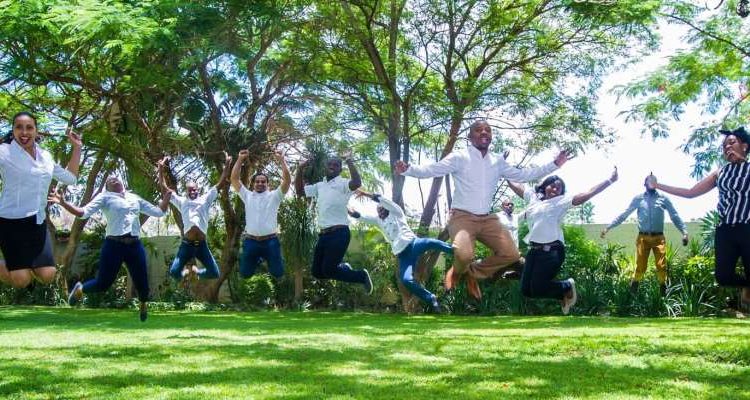
It’s been lovely to receive news of so many positive projects across Africa, undertaken by camps and lodges while they’ve been without guests. Here’s a quick snapshot of some of the goings on during this extraordinary year.
The Latitude Hotels
Latitude Hotels is a group of African city-based boutique hotels we often use for overnight stays pre and post safari. Recognising that the pandemic would put heavy pressure on the already vulnerable communities and economies in which the group operates, Latitude launched ‘Latitude Gratitude’ during the height of the first wave of the pandemic.
Latitude Gratitude kicked off with an ambitious 24 hour fundraising swimathon in May. Its global campaign raised over $25,000 which has been channelled into local grass-root organisations and charities in the company’s three areas of operation: Lusaka, Lilongwe and Kampala.
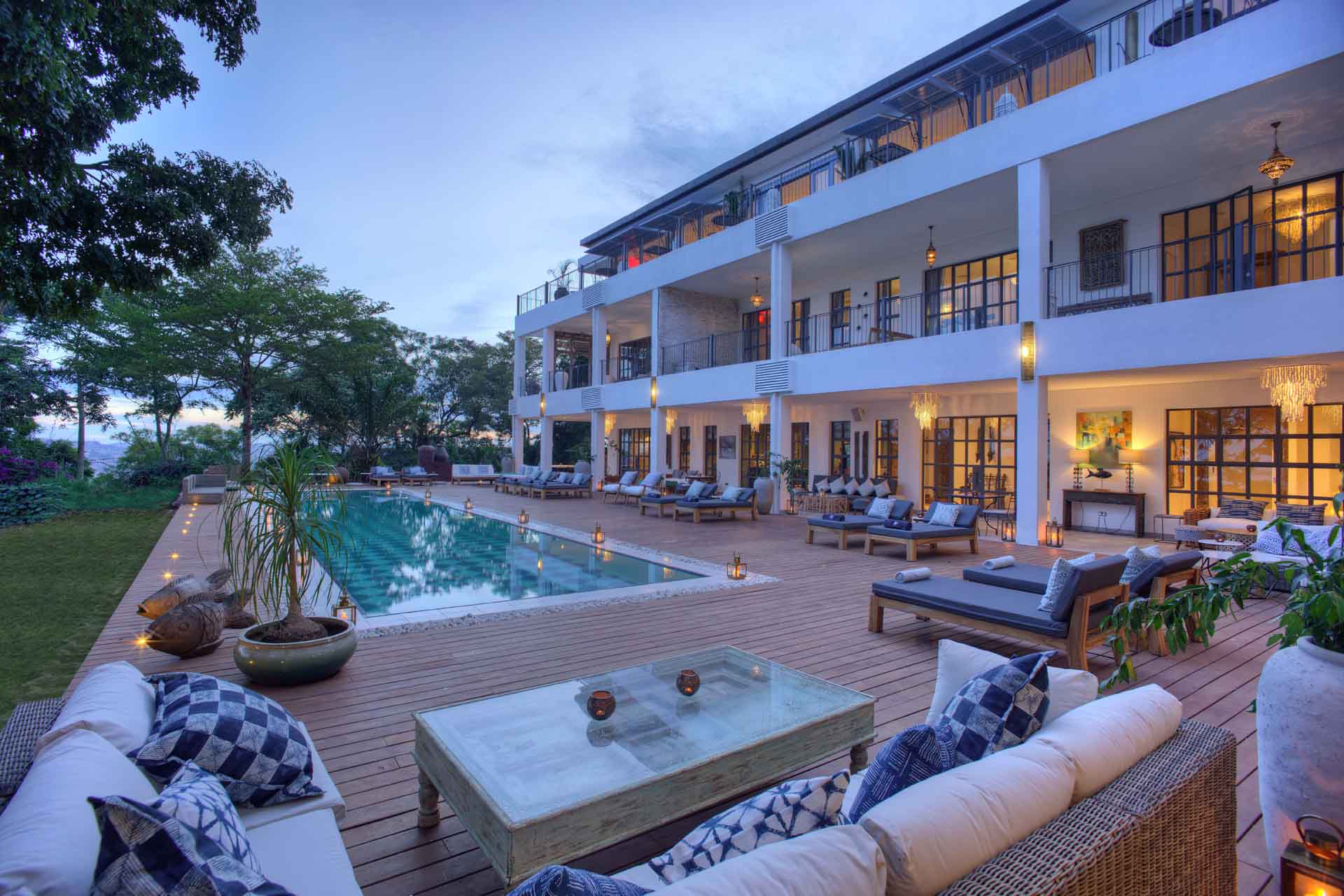
Latitude 0 in Kampala.
Latitude also worked with one of its regular suppliers to produce re-useable and visually striking face-masks in vibrant chitenge fabric which are sold to raise money for the campaign.
Zanzibar White Sand Luxury Villas and Spa
Co-owner Natalia Niznik arrived in Zanzibar for a regular three week visit early in 2020. She has yet to leave! Whilst no one welcomes the reason behind her extended stay, it has given Natalia a unique opportunity to get really engaged with the local community alongside overseeing a programme of hotel improvements.
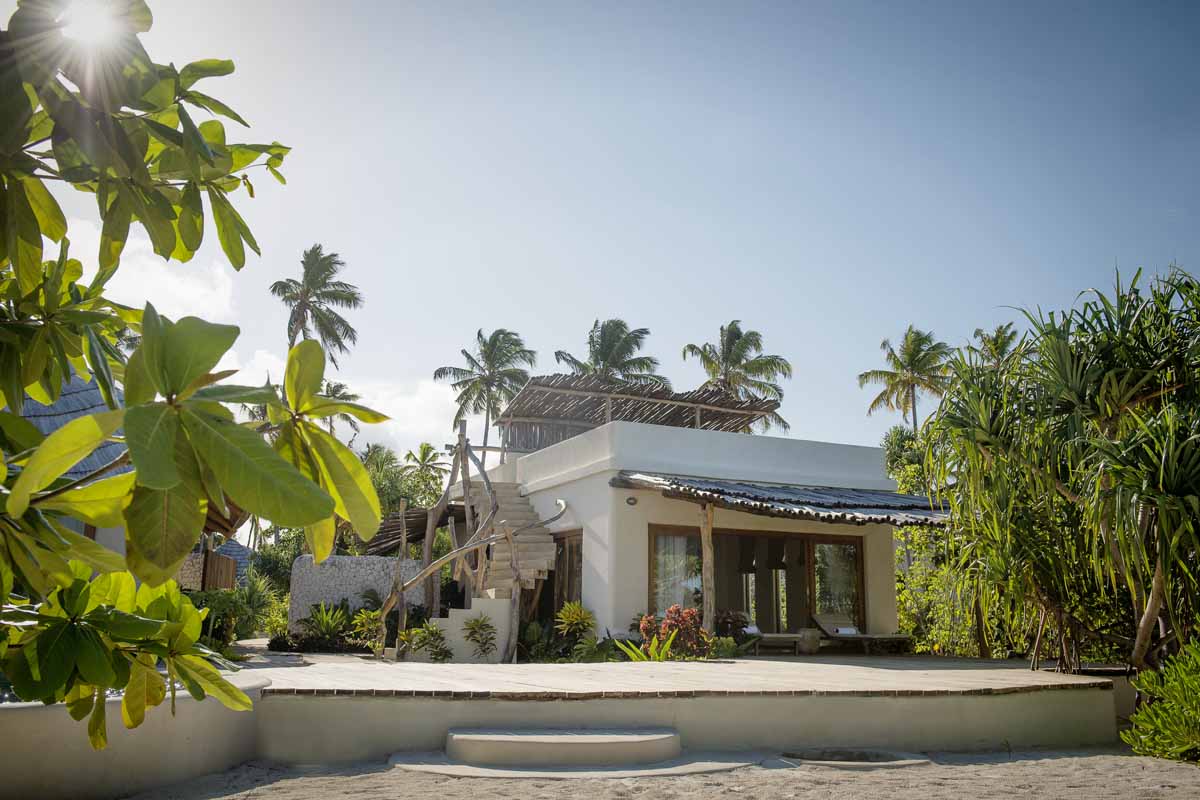
Accommodation at Zanzibar White Sands Villas and Spa
Among hotel upgrades are additional solar panels, new shingle roofs (produced in the on-site carpentry), and decking and pathways made from recycled plastic. Thorough house-keeping enabled Natalia to put redundant hotel stock to important alternative uses. Working with a local doctor on the design, ZWS’s tailor made old linen into masks for the community; they partnered with an NGO to donate towels for conversion to sanitary products; and staple food items have been distributed to the local community. Obviously job protection is the hotel’s number one priority and many of these initiatives have given staff meaningful jobs to do during the hiatus. With international guests already starting to return Natalia and her teams are feeling positive.
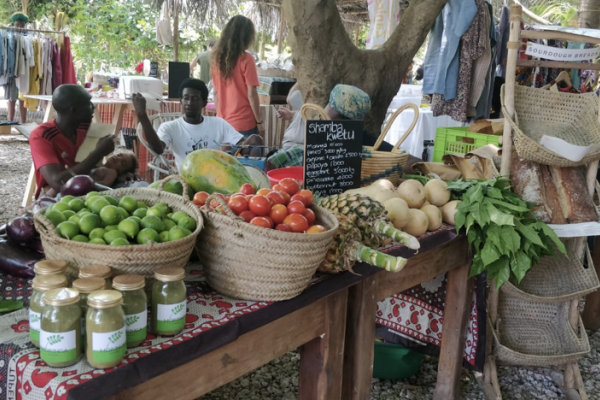
The thriving Farmers’ Market
Collaborative action has also been an inspiring element to the travel sector in these times. With seasonal and local food a long-standing passion for the hotel, Natalia has been instrumental in the formation of a group of like-minded hoteliers on the island who have established ‘The Farmers’ Market’. This vibrant new monthly market aims to connect local growers and buyers from the hospitality sector, encouraging local food and fewer food miles. The markets are buzzy, music-filled and sociable. Its long term aim is to support local farmers to go organic and adopt the best sustainable methods. The first market was a great success in October, and enthusiasm for these monthly markets is already strong.
Ker & Downey
Whilst working on various camp upgrades and refurbishment projects at their camps in the Okavango Delta, Ker & Downey MD Fran Hird has also been busy extending the ecologically significant Kariba Weed project, which is now underway at all the Delta camps.
Salvinia molesta, commonly known as giant Salvinia or “Kariba Weed” after it infested a large portion of Lake Kariba between Zimbabwe and Zambia, is an aquatic fern, native to south-eastern Brazil. If left unchecked, this alien invasive aquatic plant is very damaging to the delicate ecosystem of the Okavango Delta.
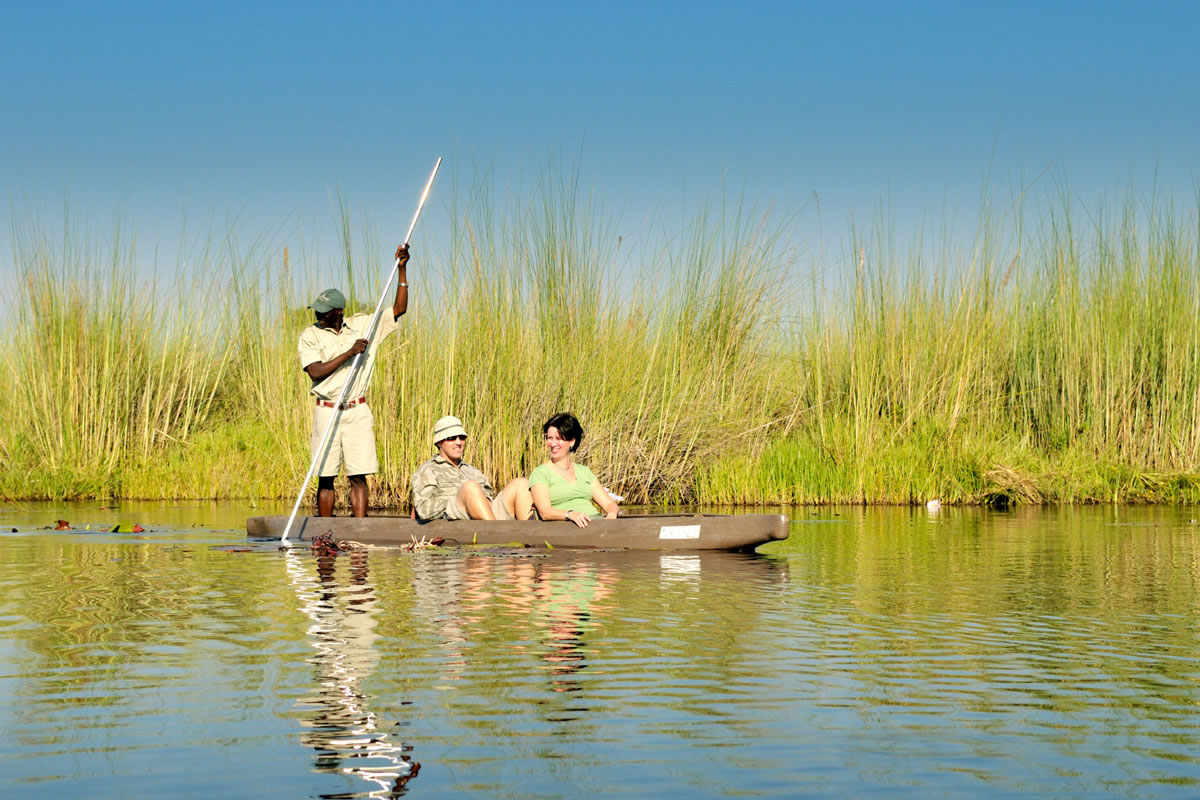
Enjoying the tranquil scenery of the Okavango Delta at Footsteps Across the Delta, one of Ker & Downey’s Botswana camps.
Ker & Downey Botswana has established project whereby weevils are used as an agent of biological pest control for Salvinia molesta. The female weevil lays over 300 eggs one by one in the lower leaves and rhizomes of the plant. The larva burrows through rhizomes and feeds voraciously on new buds, warping and stunting the plant until it eventually sinks. Adults also feed on the buds and leaves of the plant.
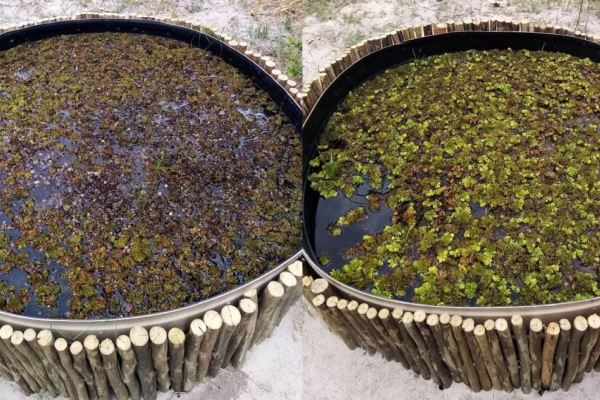
Kariba weed, before (right) and after (left) weevil treatment
The weevils are bred in holding tanks and the guides then drop them into the waters when the weeds are seen. Whilst the government’s Water Affairs department manage this on the main channels, the private sector ensures a more comprehensive coverage of the entire area.
Boschendal
With 4,500 acres of agricultural and conservation land, Boschendal is well known for its exceptional farm to fork menus. During Covid the property redirected all of its fresh produce to local child development centres, schools within the community and underprivileged community soup kitchens.
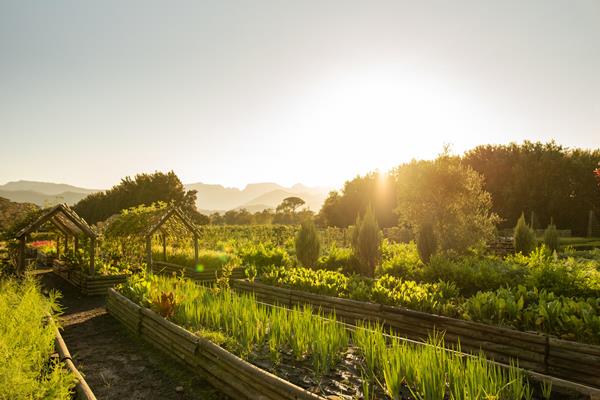
The kitchen gardens at Boschendal
It has also facilitated the delivery of basic medical supplies to support the local clinics and distributed books for children unable to go to school.
Selous Safari company
Last month Fanjove Island in the Zanzibar archipelago welcomed a group of 70 pupils and their teachers from Songo Songo Primary School for a day on the island. This initiative forms part of a commitment to involve and educate local communities about career possibilities arising from tourism. As well as highlighting the employment opportunities, the children were also shown how tourism can help conserve the unique marine eco-system and why that is so crucial for local livelihoods, such as fishing, as well as environmental benefit.
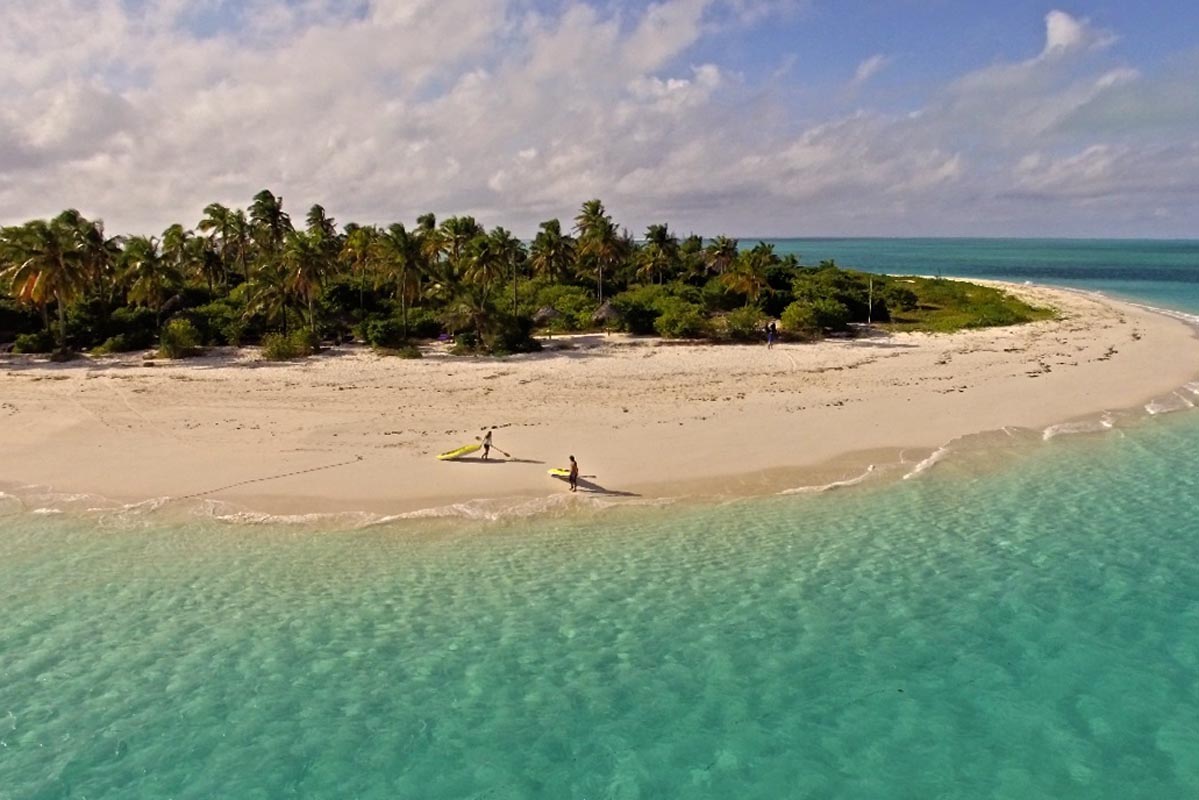
Beautiful beaches on Fanjove Island
As well as Fanjove Island, The Selous Safari Campany has Siwando and Jongomero in its portfolio and the the well-being of staff has been a top priority. Severely affected by a loss of income this season, the company has done all it can to support guides and team members during this crisis, many of whom have multiple families in their community depending on them. Guides have been working on a rotational basis ensuring that the team is kept as motivated and connected as possible. There has been the time to focus on various forms of training, including how to use technology to share stories and experiences online via video.
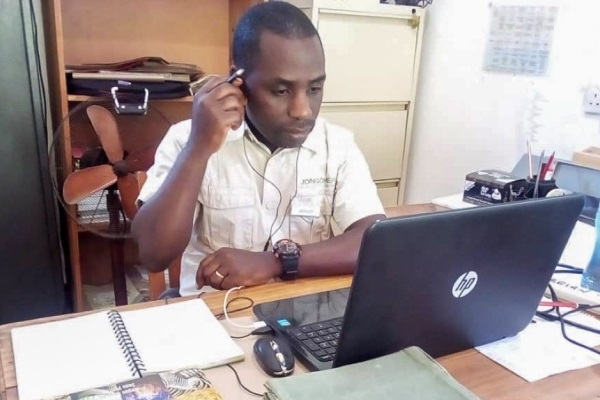
Guide training at Selous Safari Camp
For many guides, especially those who haven’t grown up with technology, this can be a daunting task but will be of great value both to them and the company in the world beyond Covid. The guides have been very proud of what they’ve achieved and it’s shown them how valued they are and how their stories, knowledge and heritage are appreciated by others around the world.
Santorini Mozambique
Santorini launched its Footprints programme, which aims to leave a sustainable and positive footprint in the communities and environment of this stretch of Mozambican coastline. Santorini funds Footprint so it can focus on environmental and education initiatives. A percentage of revenue for every guest night is donated by Santorini to the Santorini Footprints Projects.
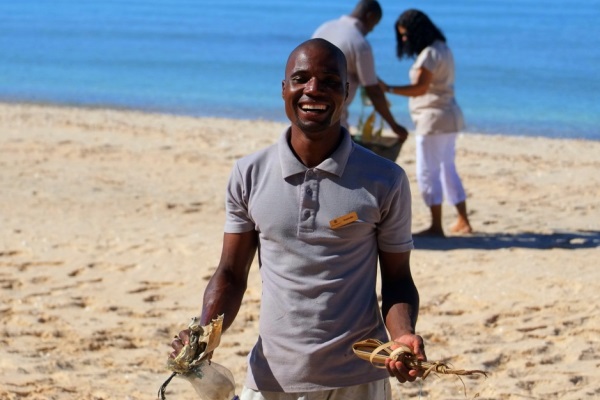
Beach clean up, one of the initiatives in Santorini Mozambique’s Footsteps programme
As part of a new partnership with ParCo, a community development agency based in Vilanculos, Santorini is assisting with school meals, teacher transport costs at the nearby Chigamane Primary School. Guests can also help by purchasing a School Access kit in the hotel’s Pansy shop. The kit includes a sturdy backpack, annual tuition fee, uniform, soap, stationary and games.
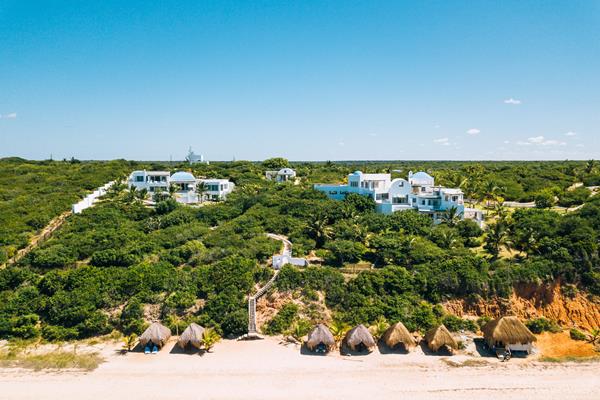
Santorini Mozambique, overlooking a pristine stretch of Indian Ocean coastline.
Other initiatives which run under the Footprints banner include beach clean ups, Pack for a Purpose and a partnership with Luz, another local community initiative.
Sausage Tree Camp
On the eve of lockdown Jason Mott, owner of Sausage Tree & Potato Bush Camps in the Lower Zambezi, decided to move his young family from Lusaka to look after their camp and to keep an eye on things in the surrounding bush. Despite the inevitable stresses and concerns wrought by the abrupt cessation of tourism, this charming home-made film gives a glimpse into one family’s lockdown experience – a different life, in different times, in a world with different rhythms.
What Next?
If you like what you’ve read here about any of the camps mentioned and want to find out more, do get in touch – chatting to people by phone or email is what we do best. We listen, we explain, we answer all sorts of questions even those you didn’t know to ask, and finally we make suggestions. If this is your first time to Africa or your twenty first, we have a team standing by to help make the planning easy and the journey the best ever. Please get in touch whatever stage you’re at.
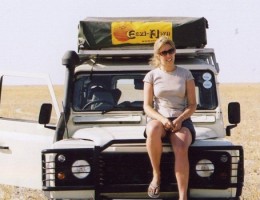
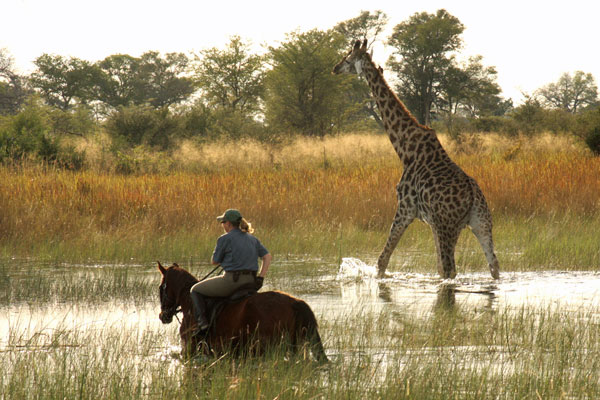
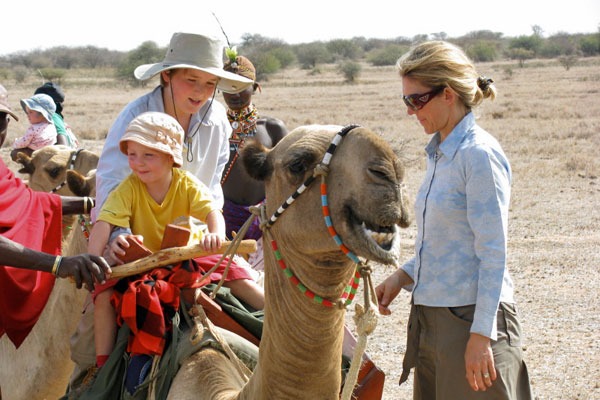 Camel safari, Kenya, Laikipia,
Camel safari, Kenya, Laikipia, 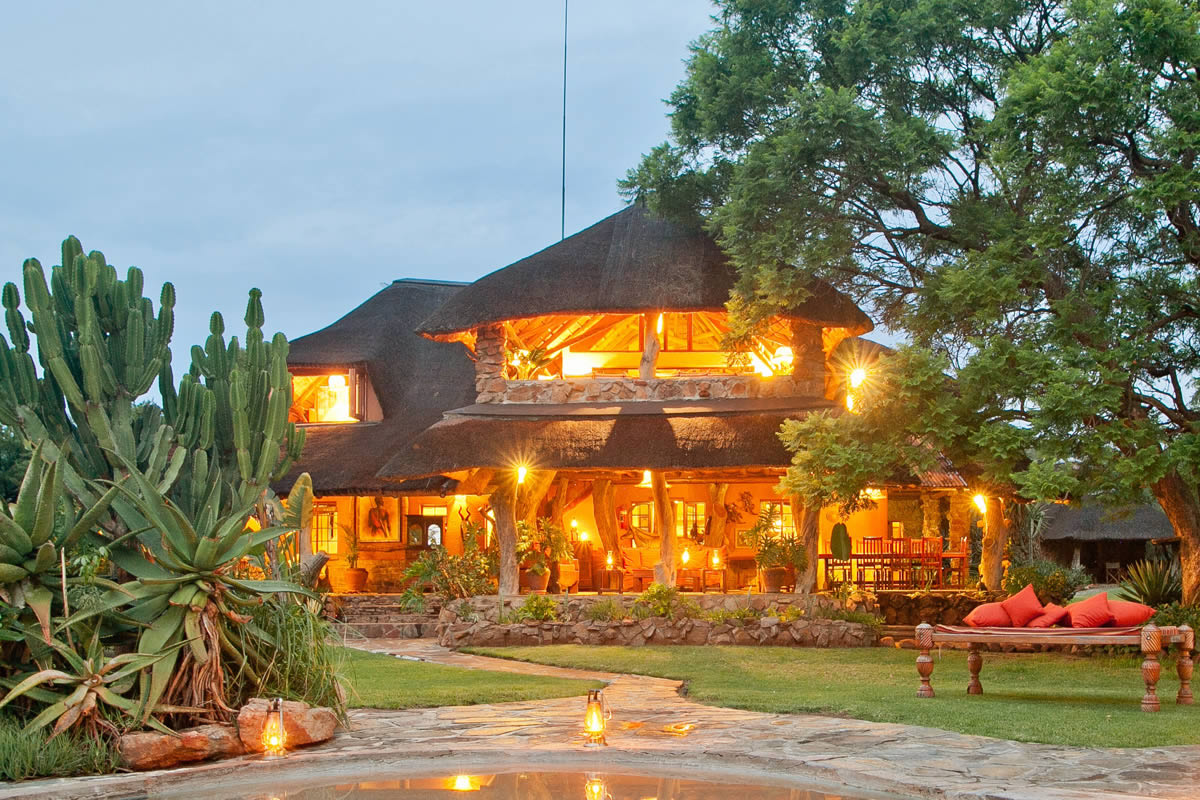 Luxury safari accommodation Waterberg, South Africa,
Luxury safari accommodation Waterberg, South Africa, 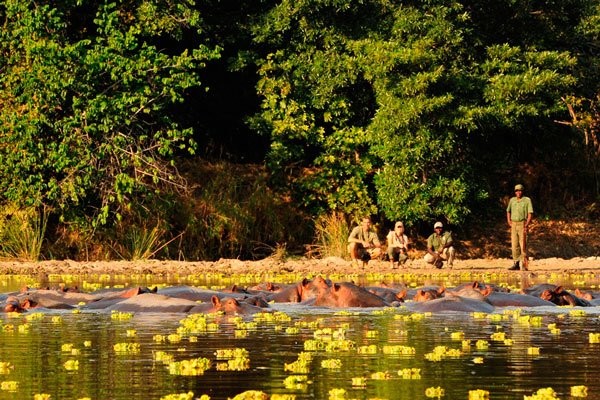 Hippos on a walking safari, South Luangwa, Zambia,
Hippos on a walking safari, South Luangwa, Zambia,
Leave a Reply